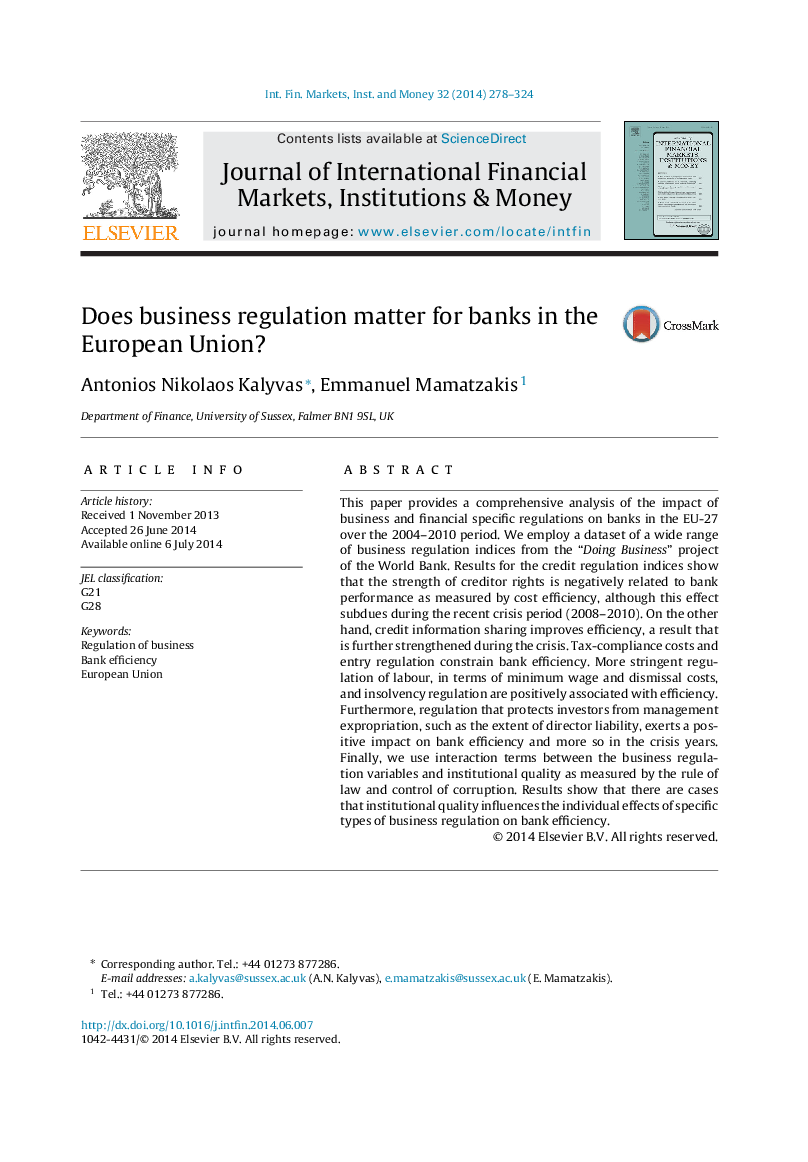| Article ID | Journal | Published Year | Pages | File Type |
|---|---|---|---|---|
| 7364868 | Journal of International Financial Markets, Institutions and Money | 2014 | 47 Pages |
Abstract
This paper provides a comprehensive analysis of the impact of business and financial specific regulations on banks in the EU-27 over the 2004-2010 period. We employ a dataset of a wide range of business regulation indices from the “Doing Business” project of the World Bank. Results for the credit regulation indices show that the strength of creditor rights is negatively related to bank performance as measured by cost efficiency, although this effect subdues during the recent crisis period (2008-2010). On the other hand, credit information sharing improves efficiency, a result that is further strengthened during the crisis. Tax-compliance costs and entry regulation constrain bank efficiency. More stringent regulation of labour, in terms of minimum wage and dismissal costs, and insolvency regulation are positively associated with efficiency. Furthermore, regulation that protects investors from management expropriation, such as the extent of director liability, exerts a positive impact on bank efficiency and more so in the crisis years. Finally, we use interaction terms between the business regulation variables and institutional quality as measured by the rule of law and control of corruption. Results show that there are cases that institutional quality influences the individual effects of specific types of business regulation on bank efficiency.
Keywords
Related Topics
Social Sciences and Humanities
Economics, Econometrics and Finance
Economics and Econometrics
Authors
Antonios Nikolaos Kalyvas, Emmanuel Mamatzakis,
